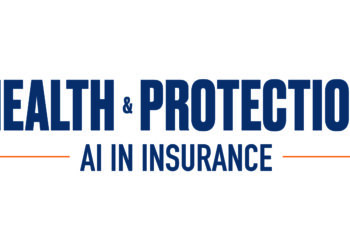Around one in five (19%) of claims paid on Aviva’s Group Income Protection in 2023 related to mental ill-health, meaning mental health concerns ranked second only to cancer, which accounted for around a quarter (24%) of the insurer’s GIP claims.
Aviva revealed that last year it saw a 19% uplift in the number of employers asking for support for employees’ mental health compared to 2022. Half of all cases referred for rehabilitation support were for mental health.
In 2023, members of Aviva’s group income protection schemes used the Thrive Mental Wellbeing app over 69,000 times and there were over 36,000 visits to its Wellbeing Library.
More than 30,423 contacts were made to its employee assistance programme (EAP) service for counselling support, which is provided by Care first. Nearly half, (48%) of all contacts related to personal emotional wellbeing, up from 43% in 2022.
Nearly seven in 10 (69%) of the 10,743 mental health consultations booked through the Aviva DigiCare+ and Aviva DigiCare + Workplace apps, provided by Square Health were made by employees covered on a group protection product with all consultations offered within 48 hours.
Anxiety, depression and stress ranked top of the list of mental health concerns for people using the service.
Last year, Aviva delivered 98 mental health training sessions, reaching 10,528 employees and employers. This activity was complemented by Aviva’s Line Manager Toolkit – Mental Health, which attracted over 11,000 video plays in 2023.
Attendees of these mental health training sessions reported a significant increase in confidence when it came to managing mental health in the workplace, with line manager and mental health training emerging as the most sought-after topics.
Sophie Mairs, insight and wellbeing manager, Aviva Group Protection, said: “It’s clear that claims for mental health are increasing but mental health isn’t a new concern.
“Over the past few years, we’ve enhanced our wellbeing support and built our claims management capabilities in this area.
“Our wellbeing support is empowering employees to manage their own mental health and enabling them to quickly access support when they need it most.
“When more support is needed, specialist services such as our mental health pathway really help employees’ rehabilitation.
“Almost nine in 10 employees completing mental health rehabilitation via our Group Income Protection last year successfully returned to – or remained at work and, of these, 96% returned to work within the scheme deferred period.”
Mairs added: “Our mental health training for employers and employees went from strength to strength in 2023, with record numbers attending, and engagement with the content in our Line Manager Toolkit continues to be strong.
“Employers play a crucial role when it comes to spotting the signs of mental ill-health and managing mental health concerns in the workplace.
“So, it’s great to see that there’s a real appetite to improve their understanding of mental health and their confidence when supporting employees.”






